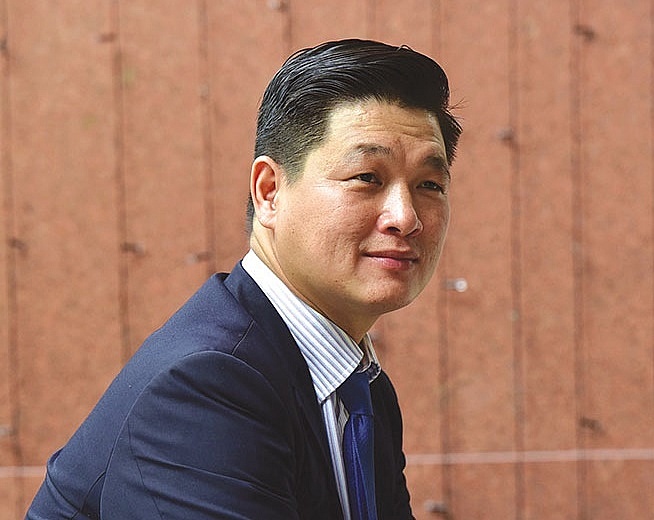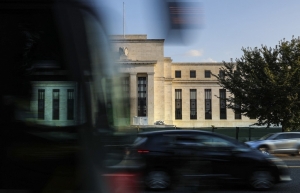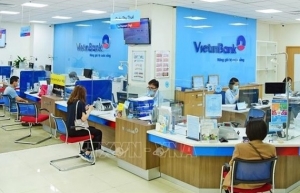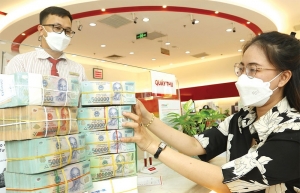Firms urged to keep abreast of alterations by US Fed
How will international investors’ behaviour in Vietnam’s stock market change after the Fed’s decision to raise interest rates?
 |
| Vicente Nguyen, chief investment officer of the Asia Frontier Capital Vietnam Fund |
The appreciation of the US dollar will result in a greater withdrawal of capital from Vietnam’s equity market, and the selling pressure will be stronger. This will have an unfavourable influence on the domestic stock market straight away. Regarding monetary policy, the State Bank of Vietnam (SBV) has raised interest rates by 200 basis points over the last two months.
Furthermore, it adjusted the USD/VND exchange rate band to make the exchange rate more flexible and safeguard foreign currency reserves.
This initiative also helps to increase the competitiveness of local business exports, and decrease imports. Although the VND has depreciated almost 9 per cent versus the USD since the beginning of the year, the VND remains a strong currency compared to its primary export markets, such as the EU, Japan, South Korea, and China, as well as its rivals. The SBV has had to adopt a more accommodating stance towards currency exchange to prop up the economy.
What problems are Vietnamese firms likely to face with the strong US dollar?
When the value of USD rises, loans denominated in dollars exert substantial pressure on local businesses and the economy as a whole. Higher interest rates and a rising USD make those debts even more expensive for Vietnamese businesses, and the situation becomes much tougher.
Furthermore, as I noted above, a stronger USD triggers international capital flows out of emerging and frontier economies, which has a massive impact on Vietnam’s foreign currency reserves. Nonetheless, the government has effectively mitigated this by making prompt adjustments to the exchange rate.
In addition to financial strain, importers have to face a significant deal of stress due to a dramatic spike in purchase prices, which increases expenses and decreases earnings for Vietnamese businesses. However, exporters enjoy an edge as they receive money in USD. Therefore, it could have both beneficial and bad consequences for firms, depending on how they operate.
What recommendations do you have for local and international investors in the current economic climate?
Vietnam’s stock market is being sold off disproportionately and excessively, and some good businesses are significantly undervalued. As long-term and value investors, we continue to adhere to these guiding principles. However, this short-term setback must be borne as well.
The economy still boasts favourable promise thanks to the country’s robust GDP growth and stable development potential. Nevertheless, some sectors, including real estate, construction, steel, and banking, are experiencing severe difficulties.
A lack of trust from investors is the primary issue of concern in Vietnam’s stock market. It seems that confidence is eroding across the board in the capital and the debt/corporate bond markets. Strict measures and severe penalties to “purge” individuals and organisations that violate rules and regulations have scared investors.
We refrained from investing in those areas to lessen the negative impact of the real estate, steel, and securities sectors. Instead, we have diversified into higher-yielding industries, such as insurance, to stave off a cash crunch, and tourism and exports, where surging earnings have resulted from the newfound opportunities in the post-pandemic period.
What are your thoughts on elevating Vietnam’s stock market from frontier to emerging status?
This has always been a major topic of discussion, but because upgrading is a lengthy process, we believe additional time is required. To be upgraded from a frontier market to an emerging market in accordance with the roadmap and to attract more foreign investment capital and numerous institutional investors, Vietnam must make further efforts and execute several synchronous measures.
 | US Fed starts policy meeting with further rate hike expected US central bankers started their two-day policy meeting Tuesday with persistently high inflation backing expectations of another rate hike -- a fourth straight steep increase as price pressures fail to ease quickly enough. |
 | Keeping monetary stability-core task in face of FED interest rate hikes Amid the US Federal Reserve (FED)’s continuous increases of interest rates to cope with inflation, the most important task for Vietnam now is to keep macro-economic stability, with monetary stability being the core, some economic experts have said. |
 | Central banks brace after new Fed move Central banks across the globe have announced their recent rate hike in a bid to tame inflation, but market watchdogs predict that the tempo of rate rises is starting to slow down. |
What the stars mean:
★ Poor ★ ★ Promising ★★★ Good ★★★★ Very good ★★★★★ Exceptional
Related Contents
Latest News
More News
- Private capital funds as cornerstone of IFC plans (February 20, 2026 | 14:38)
- Priorities for building credibility and momentum within Vietnamese IFCs (February 20, 2026 | 14:29)
- How Hong Kong can bridge critical financial centre gaps (February 20, 2026 | 14:22)
- All global experiences useful for Vietnam’s international financial hub (February 20, 2026 | 14:16)
- Raised ties reaffirm strategic trust (February 20, 2026 | 14:06)
- Sustained growth can translate into income gains (February 19, 2026 | 18:55)
- The vision to maintain a stable monetary policy (February 19, 2026 | 08:50)
- Banking sector faces data governance hurdles in AI transition (February 19, 2026 | 08:00)
- AI leading to shift in banking roles (February 18, 2026 | 19:54)
- Digital banking enters season of transformation (February 16, 2026 | 09:00)

 Tag:
Tag:



















 Mobile Version
Mobile Version